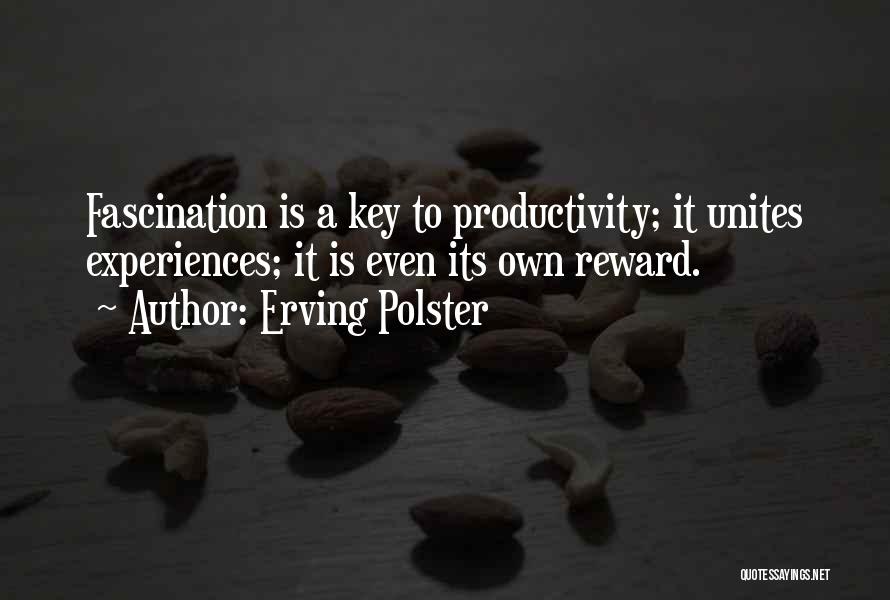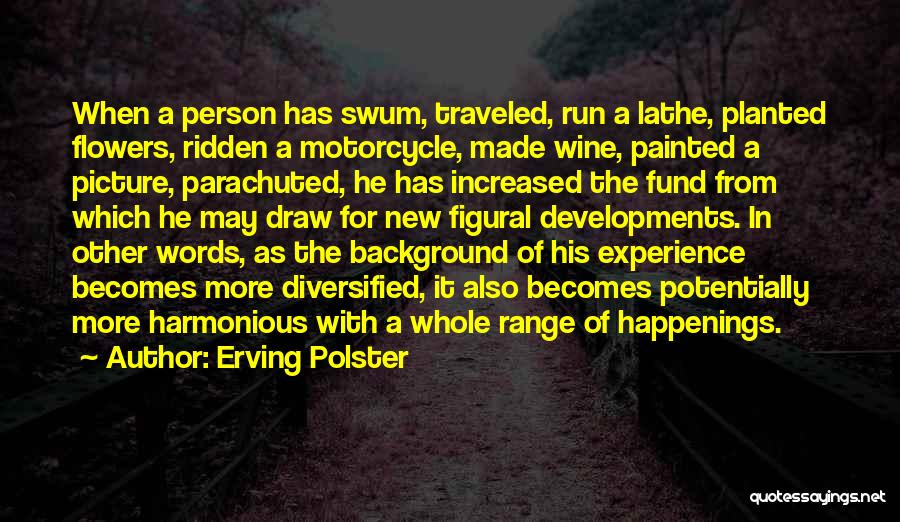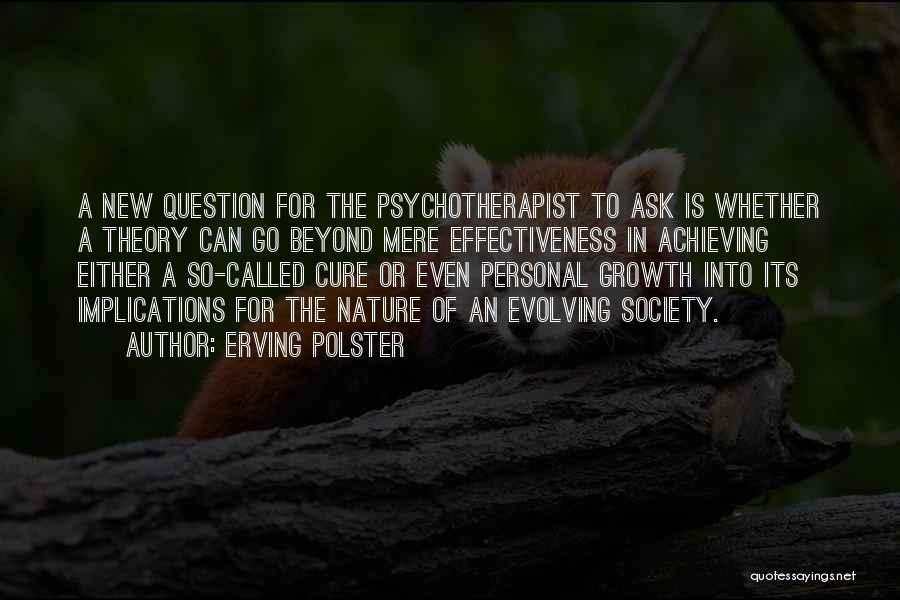Erving Polster Quotes & Sayings
Enjoy the top 8 famous quotes, sayings and quotations by Erving Polster.
Famous Quotes By Erving Polster

Theory and knowledge remain suspect, not because of inherent worthlessness, but because of their historic isolation from action. Without theoretical orientation, however, action is vulnerable to oversimplified and glib imitativeness-even mimicry-and to the use of the gimmick. — Erving Polster

We want to hear the story first and let the meaning unfold, rather than to be present with expectations of a certain significance into which all behavior is then fitted. — Erving Polster

Fascination is a key to productivity; it unites experiences; it is even its own reward. — Erving Polster

The paradox is that, while a concern with past and future is obviously central to psychological functioning, to behave as though one were indeed in the past or future, as many do, pollutes the lively possibilities of existence. — Erving Polster

When a person has swum, traveled, run a lathe, planted flowers, ridden a motorcycle, made wine, painted a picture, parachuted, he has increased the fund from which he may draw for new figural developments. In other words, as the background of his experience becomes more diversified, it also becomes potentially more harmonious with a whole range of happenings. — Erving Polster

Therapy is too good to be limited to the sick. — Erving Polster

A new question for the psychotherapist to ask is whether a theory can go beyond mere effectiveness in achieving either a so-called cure or even personal growth into its implications for the nature of an evolving society. — Erving Polster

It is important to learn the difference between staying with an experience until it is completed and hanging on, trying to get something more-anything more-from a situation which is either finished or barren. The basic clues are whether attention to the issue is loose, unfixed, mobile attentiveness or whether it is an attentiveness which feels glued to its object. The people with the bug-eyed stare, the clinging grasp, the insistent preoccupations, the sense of desperation, the ready-made sermons, the unwillingness to leave when conversations are finished, the quoting of authorities, etc. are all hanging on. — Erving Polster





